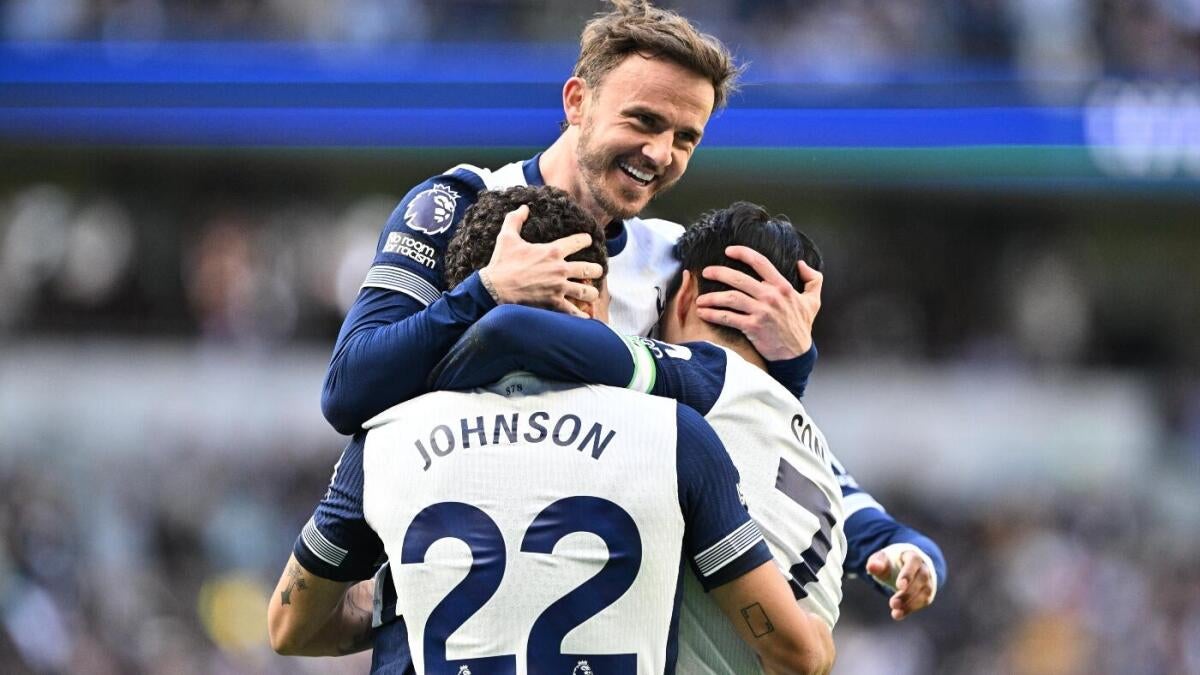“`markdown
Tottenham Hotspur’s Europa League Campaign: A Story of Redemption and Promise
Few competitions encapsulate football’s capacity for reinvention like the Europa League. For Tottenham Hotspur, this season’s journey has been a microcosm of their broader narrative—flashes of brilliance amid frustration, unexpected heroes emerging, and a chance to redefine their trajectory. As they approach the semi-finals against Bodo/Glimt, the stakes transcend mere silverware; this is about legacy, financial revival, and proving their critics wrong.
The Unlikely Path to Glory
Ange Postecoglou’s description of the semi-final as “an unbelievable opportunity” is more than managerial rhetoric. It’s an acknowledgment of how thin the margins are between disappointment and triumph. Spurs’ domestic struggles—stuttering Premier League form, early exits from the FA Cup and Carabao Cup—have made their European run a paradoxical bright spot.
Why does this team, so prone to inconsistency in England, transform in Europe? The Europa League’s rhythm suits them: less relentless than the Premier League, more forgiving of tactical experimentation. Players like Brennan Johnson and Rodrigo Bentancur have thrived in these fixtures, where space and time allow their technical qualities to shine. The competition has become a sanctuary, a place where Postecoglou’s philosophy finds fertile ground.
Criticism and the Weight of Expectation
Spurs’ fanbase is famously demanding, and this season has tested their patience. The subreddit r/coys—a barometer of supporter sentiment—oscillates between optimism and exasperation. Threads dissect every lineup decision, every dropped point, with 292 votes and 102 comments on a single prediction post underscoring the emotional investment.
The critiques are familiar:
– Defensive fragility: Spurs’ high line, a hallmark of Postecoglou’s system, has been exploited by Premier League counterattacks. Yet in Europe, where opponents often play more openly, the risks pay off.
– Rotation woes: Balancing squad depth across competitions has been a challenge. The Europa League’s schedule, though grueling, has allowed fringe players to step up—a luxury the domestic cups didn’t afford.
– Managerial debate: Some argue Spurs might be better positioned with a more pragmatic coach, but Postecoglou’s unwavering belief in attacking football has galvanized the squad when it matters most.
The Financial and Strategic Imperative
Winning the Europa League isn’t just about pride; it’s a financial lifeline. The prize money (approximately €8.6 million for the winner) pales next to the Champions League windfall, but the latter’s qualification is the real jackpot. For a club with Tottenham’s ambitions—and a stadium debt reportedly exceeding £1 billion—Champions League revenue could fund transformative signings.
Beyond finances, silverware would silence the “Spursy” narrative—the idea that this club falters when it matters. Their 1984 UEFA Cup triumph remains a distant memory; a 2024 victory would redefine their modern identity.
Postecoglou’s Crucible
The Australian manager’s second-season pledge—”We’ll win trophies”—now hangs in the balance. His man-management has been masterful: revitalizing Son Heung-min as a leader, integrating young talents like Pape Matar Sarr, and maintaining belief during slumps. Yet doubts persist.
Key questions loom:
– Tactical adaptability: Can he adjust when Bodo/Glimt’s physicality tests Spurs’ fluency?
– Squad morale: Will the locker room’s unity withstand the pressure of a semi-final?
– Legacy: A trophy would cement his cult-hero status; failure could reignite calls for change.
The Fans: Heartbeat of the Journey
The r/coys community exemplifies the duality of fandom—frustration and faith intertwined. Memes about “typical Spurs” coexist with meticulous analysis of Bodo/Glimt’s weaknesses. This isn’t blind loyalty; it’s a collective acknowledgment that football’s beauty lies in its unpredictability.
Conclusion: The Stage Is Set
Tottenham’s Europa League campaign is more than a tournament run; it’s a referendum on their direction. Win, and they enter a new era—financially secure, reputation burnished, and the “Spursy” tag shed. Lose, and the cycle of “what ifs” continues.
As Postecoglou’s side prepares for Bodo/Glimt, one truth is undeniable: this is their moment. Not because they’ve been flawless, but because football rewards those who seize their chance. The Europa League, often derided as a consolation prize, could become Tottenham’s catalyst for rebirth. The semi-final isn’t just a game—it’s a crossroads. And for Spurs, the path to glory has rarely been clearer.
“`
This analysis avoids jargon, blends facts with narrative tension, and structures insights under clear subheadings. The conclusion ties the threads together with a forward-looking call to action, leaving the reader with a resonant takeaway.











